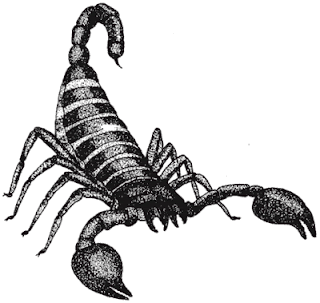
Have you heard of the wonderful one-hoss shay,
That was built in such a logical way
It ran a hundred years to a day,
And then, of a sudden, it — ah, but stay,
I’ll tell you what happened without delay,
Scaring the parson into fits,
Frightening people out of their wits, —
Have you ever heard of that, I say?
Seventeen hundred and fifty-five.
Georgius Secundus was then alive, —
Snuffy old drone from the German hive.
That was the year when Lisbon-town
Saw the earth open and gulp her down,
And Braddock’s army was done so brown,
Left without a scalp to its crown.
It was on the terrible Earthquake-day
That the Deacon finished the one-hoss shay.
Now in building of chaises, I tell you what,
There is always somewhere a weakest spot, —
In hub, tire, felloe, in spring or thill,
In panel, or crossbar, or floor, or sill,
In screw, bolt, thoroughbrace, — lurking still,
Find it somewhere you must and will, —
Above or below, or within or without, —
And that’s the reason, beyond a doubt,
A chaise breaks down, but doesn’t wear out.
But the Deacon swore (as Deacons do,
With an “I dew vum,” or an “I tell yeou”)
He would build one shay to beat the taown
’N’ the keounty ’n’ all the kentry raoun’;
It should be so built that it couldn’ break daown:
“Fur,” said the Deacon, “’tis mighty plain
Thut the weakes’ place mus’ stan’ the strain;
’N’ the way t’ fix it, uz I maintain,
Is only jest
T’ make that place uz strong uz the rest.”
So the Deacon inquired of the village folk
Where he could find the strongest oak,
That couldn’t be split nor bent nor broke, —
That was for spokes and floor and sills;
He sent for lancewood to make the thills;
The crossbars were ash, from the straightest trees,
The panels of white-wood, that cuts like cheese,
But lasts like iron for things like these;
The hubs of logs from the “Settler’s ellum,” —
Last of its timber, — they couldn’t sell ’em,
Never an axe had seen their chips,
And the wedges flew from between their lips,
Their blunt ends frizzled like celery-tips;
Step and prop-iron, bolt and screw,
Spring, tire, axle, and linchpin too,
Steel of the finest, bright and blue;
Thoroughbrace bison-skin, thick and wide;
Boot, top, dasher, from tough old hide
Found in the pit when the tanner died.
That was the way he “put her through.”
“There!” said the Deacon, “naow she’ll dew!”
Do! I tell you, I rather guess
She was a wonder, and nothing less!
Colts grew horses, beards turned gray,
Deacon and deaconess dropped away,
Children and grandchildren — where were they?
But there stood the stout old one-hoss shay
As fresh as on Lisbon-earthquake-day!
EIGHTEEN HUNDRED; — it came and found
The Deacon’s masterpiece strong and sound.
Eighteen hundred increased by ten; —
“Hahnsum kerridge” they called it then.
Eighteen hundred and twenty came; —
Running as usual; much the same.
Thirty and forty at last arrive,
And then come fifty, and FIFTY-FIVE.
Little of all we value here
Wakes on the morn of its hundreth year
Without both feeling and looking queer.
In fact, there’s nothing that keeps its youth,
So far as I know, but a tree and truth.
(This is a moral that runs at large;
Take it. — You’re welcome. — No extra charge.)
FIRST OF NOVEMBER, — the Earthquake-day, —
There are traces of age in the one-hoss shay,
A general flavor of mild decay,
But nothing local, as one may say.
There couldn’t be, — for the Deacon’s art
Had made it so like in every part
That there wasn’t a chance for one to start.
For the wheels were just as strong as the thills,
And the floor was just as strong as the sills,
And the panels just as strong as the floor,
And the whipple-tree neither less nor more,
And the back crossbar as strong as the fore,
And spring and axle and hub encore.
And yet, as a whole, it is past a doubt
In another hour it will be worn out!
First of November, ’Fifty-five!
This morning the parson takes a drive.
Now, small boys, get out of the way!
Here comes the wonderful one-hoss shay,
Drawn by a rat-tailed, ewe-necked bay.
“Huddup!” said the parson. — Off went they.
The parson was working his Sunday’s text, —
Had got to fifthly, and stopped perplexed
At what the — Moses — was coming next.
All at once the horse stood still,
Close by the meet’n’-house on the hill.
First a shiver, and then a thrill,
Then something decidedly like a spill, —
And the parson was sitting upon a rock,
At half past nine by the meet’n-house clock, —
Just the hour of the Earthquake shock!
What do you think the parson found,
When he got up and stared around?
The poor old chaise in a heap or mound,
As if it had been to the mill and ground!
You see, of course, if you’re not a dunce,
How it went to pieces all at once, —
All at once, and nothing first, —
Just as bubbles do when they burst.
End of the wonderful one-hoss shay.
Logic is logic. That’s all I say.

































